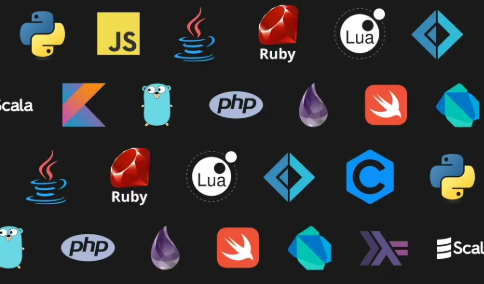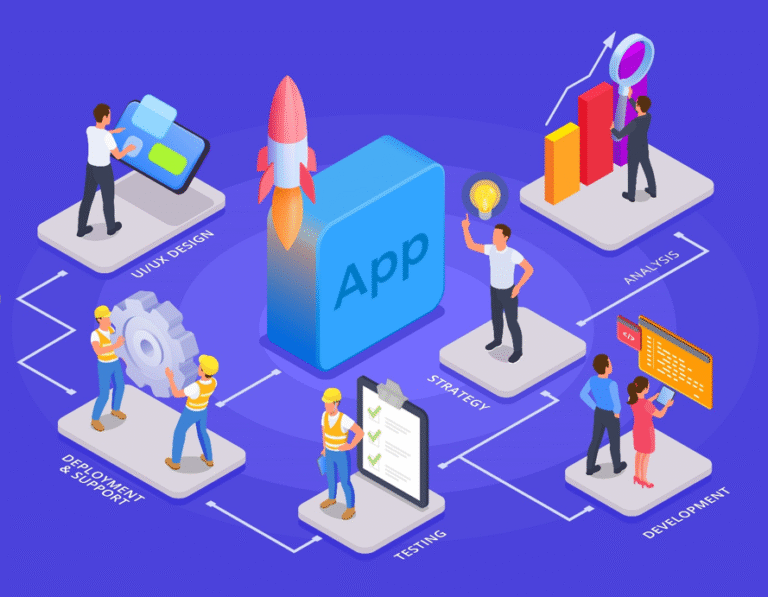Best Programming Languages for Beginners in 2025
Introduction
Choosing the right programming language as a beginner can feel overwhelming. With hundreds of languages out there, deciding where to start depends largely on your goals, learning style, and what kind of projects you want to build. The right first language can make your journey smoother, boost your confidence, and help you understand core programming concepts that carry over to other languages. In this article, we’ll explore the best programming languages for beginners in 2025, discuss what makes a language beginner-friendly, compare some of the top choices, introduce related (LSI) keywords, and help you decide based on your interests. By the end, you’ll be better equipped to pick a language that fits you, not just what’s popular.
What Makes a Programming Language Beginner-Friendly
Before listing languages, it’s useful to understand what features tend to make a language easier for beginners. These include:
- Simple, readable syntax – Code that looks clean, minimal boilerplate, similar in structure to English helps reduce cognitive load.
- Strong documentation & community support – Tutorials, forums, example projects help beginners overcome obstacles.
- Immediate feedback / REPL / interpreter – If you can write code and see results quickly, it helps learning.
- Flexibility & versatility – Can be used for multiple domains: web, data, scripting, apps.
- Job market demand / relevance – Learning a language that is in demand helps with motivation and future opportunities.
- Tools & libraries – Ready-to-use frameworks, packages, tools make building real stuff easier.
These are part of what search engines and experts often flag when ranking “best programming languages for beginners.” For example, Pluralsight’s “Top Programming Languages in 2025” lists Python as #1 because it is easy for beginners and has libraries for many domains.
Top Programming Languages for Beginners in 2025
Based on current trends, popularity data, and beginner-friendliness, here are some of the best programming languages for those just starting out. Each has its own strengths; which one is “best” depends on your goals.
| Language | Why It’s Good for Beginners | Potential Uses / Domains | Considerations / Downsides |
|---|---|---|---|
| Python | Very readable syntax; large supportive community; excellent for scripting, data science, AI, machine learning. Often recommended as first language. | Web development (with Django, Flask), data analysis, automation, AI/ML, scientific computing | Slower speed compared to compiled languages; sometimes managing package versions or environments can confuse beginners |
| JavaScript | Runs in browsers; immediate visual feedback; vast resources; versatile (front-end + back-end via Node.js) | Web apps, interactive websites, server-side with Node, mobile apps via frameworks | Dynamic typing can lead to bugs; browser differences; sometimes complicated build tools/frameworks |
| Java | Strong OO (object-oriented) concepts; used by big companies; good tooling (IDEs), strong job demand. | Large scale enterprise applications, Android apps (though now Kotlin is also used), backend services | More boilerplate; stricter syntax; slower startup learning curve compared to Python or JavaScript |
| TypeScript | Builds on JavaScript; adds static type checking, which catches bugs early; code tends to be more maintainable. Good as you scale. | Web apps, large JavaScript projects, front-end frameworks (React, Angular), back-end (Node + TS) | Slightly steeper learning curve than pure JavaScript; tooling setup needed; sometimes verbose |
| C# | Powerful, well-designed OO & type system; great development tools (Visual Studio); used in game development (Unity), enterprise apps. | Windows apps, game dev, enterprise backends, also cross-platform with .NET Core / .NET 6+ | Complexity of toolchain; some features may be advanced for total beginners; types and structure demand discipline |
| Go (Golang) | Simplicity in syntax; strong performance; good standard library; fewer “magic” abstractions; becoming more popular. | Backend services, web servers, cloud tools, concurrent/distributed systems | Less “tutorial resources” compared to bigger languages; fewer frameworks; sometimes less forgiving with lower-level details |
| SQL | Not a full “programming language” in some sense, but essential for data; good for understanding databases; widely used; beginner projects often need data. | Data analysis, backend services, reporting, dashboards | It’s declarative; not suited for general programming logic/design; may be frustrating if mixing with language code without clear context |
How to Pick the Best Language for You
Here are some guiding questions and tips that will help you decide which language to start with:
- What interests you most?
- Want to build websites? → JavaScript + HTML + CSS
- Interested in data, AI or automation? → Python
- Aim for mobile apps or games? → Consider Java / Kotlin (for Android), Swift (for iOS), or C# (Unity).
- How much time are you willing to invest?
Languages with stricter syntax or more boilerplate might be slower to get started but provide strong foundations (Java, C#). Simpler languages (Python, JavaScript) allow you to see results quickly. - Build something real.
The best way to learn is by doing. Pick a simple project you care about, then learn the language while building it. This keeps motivation high. - Don’t fear switching.
Once you understand basic programming concepts (variables, loops, conditionals, functions, data structures), learning another language becomes much easier. - Factor in job market / demand.
It helps to pick a language that has demand in your region or globally, for employability or freelancing. Python, JavaScript, Java, TypeScript, C# are among those in high demand in 2025. - Check resources in your native language.
If English isn’t your first language, see if there are good tutorials, books, or videos in your language—this can speed up learning.
Comparisons & Trade-Offs
- Static typing vs dynamic typing: Static types (Java, TypeScript, C#) enforce certain rules at compile time; dynamic types (Python, JavaScript) are more flexible but can lead to runtime errors. Static typing helps build larger, more maintainable systems, but might be harder for beginners.
- High-level vs low-level: High-level languages abstract away details (memory management, low-level operations) and help you focus on logic, which is good for a first language. Low-level (like C) teaches how things work under the hood, but can be more complex initially.
- Tooling and environment: Some languages have very mature IDEs, debugging tools, and communities (e.g. Java, C#); others have simpler setups but possibly less guidance.
- Performance vs ease: If you want speed or efficiency (games, systems), performance matters; but for learning, ease and clarity often win out.
LSI Keywords You Might See (and Want to Use)
While writing or searching around this topic, you’ll come across related terms (Latent Semantic Indexing keywords) that connect to “best programming languages for beginners.” Using them helps your content feel natural, relevant, and rich. Some LSI keywords include:
- programming languages for beginners
- beginner friendly coding language
- first programming language
- easiest language to learn to code
- programming languages comparison
- languages for web development beginners
- coding for novices
- best languages to start programming
- languages in demand 2025
- syntax simplicity in coding
Sample Learning Paths
Here are two example paths based on different goals:
| Path / Goal | Suggested First Language(s) | Why |
|---|---|---|
| Web Developer / Front-End Focus | JavaScript → TypeScript → maybe React or Vue frameworks | JavaScript gives you direct ability to build UIs, see results immediately; TypeScript helps as complexity grows. |
| Data, AI, Scripting, Automation | Python → maybe R / Julia later | Python has tons of libraries, clear syntax; later can learn specialized languages for statistics or performance. |
| Enterprise / Backend Systems | Java or C# → Go or Rust (for systems-level or performance-sensitive tasks) | Good foundation, then move into languages that emphasize performance or concurrency. |
Conclusion
Choosing the best programming language for beginners isn’t about finding the universally perfect one—it’s about finding the one that matches your interests, motivations, and goals. Languages like Python and JavaScript stand out in 2025 as top picks because they combine readability, versatility, strong community support, and demand in the job market. Other excellent choices like Java, TypeScript, C#, and Go offer different strengths depending on what you want to build—large scale apps, performance-sensitive software, enterprise systems, or clean architecture.
Remember: the first language is a stepping stone. What truly matters is learning how to think algorithmically, solve problems, build things, debug, and stay curious. Once you get that foundation, you can pick up new languages with much more ease. So pick one starter language, begin building, and grow your skills from there. Success comes to those who do, not just those who plan.
FAQs (People Also Ask)
- What is the easiest programming language for absolute beginners?
Many experts agree that Python is one of the easiest languages to start with, thanks to its simple, readable syntax, huge amount of learning resources, and versatile use-cases. JavaScript is also a strong option, especially if you want to build web pages and apps. - Should I learn JavaScript or Python first?
It depends on your goals:- If you’re drawn to web development (front-end or full stack), start with JavaScript.
- If you’re more interested in data science, automation, or general scripting, Python may be more suitable.
Both have strong communities and job demand.
- Is it better to start with a statically typed language (like Java or C#) or a dynamically typed one (Python, JavaScript)?
Starting with a dynamically typed language is usually easier because there’s less syntax & setup required. However, learning a statically typed language eventually gives you discipline, catches errors early, and helps with larger scale projects. - How long does it take to learn a programming language well enough to build basic projects?
If you practice regularly (e.g. daily or several times per week), you can often build simple projects (like a to-do list, small web page, or basic script) within 1-2 months. More complex projects take longer as you’ll need to learn libraries, frameworks, and best practices. - Can I switch languages later if I start with one?
Absolutely. Once you grasp core programming concepts—variables, loops, conditionals, functions, data structures—transitioning to a new language is much easier. Many of those skills are transferable, so starting with one doesn’t lock you in permanently.







